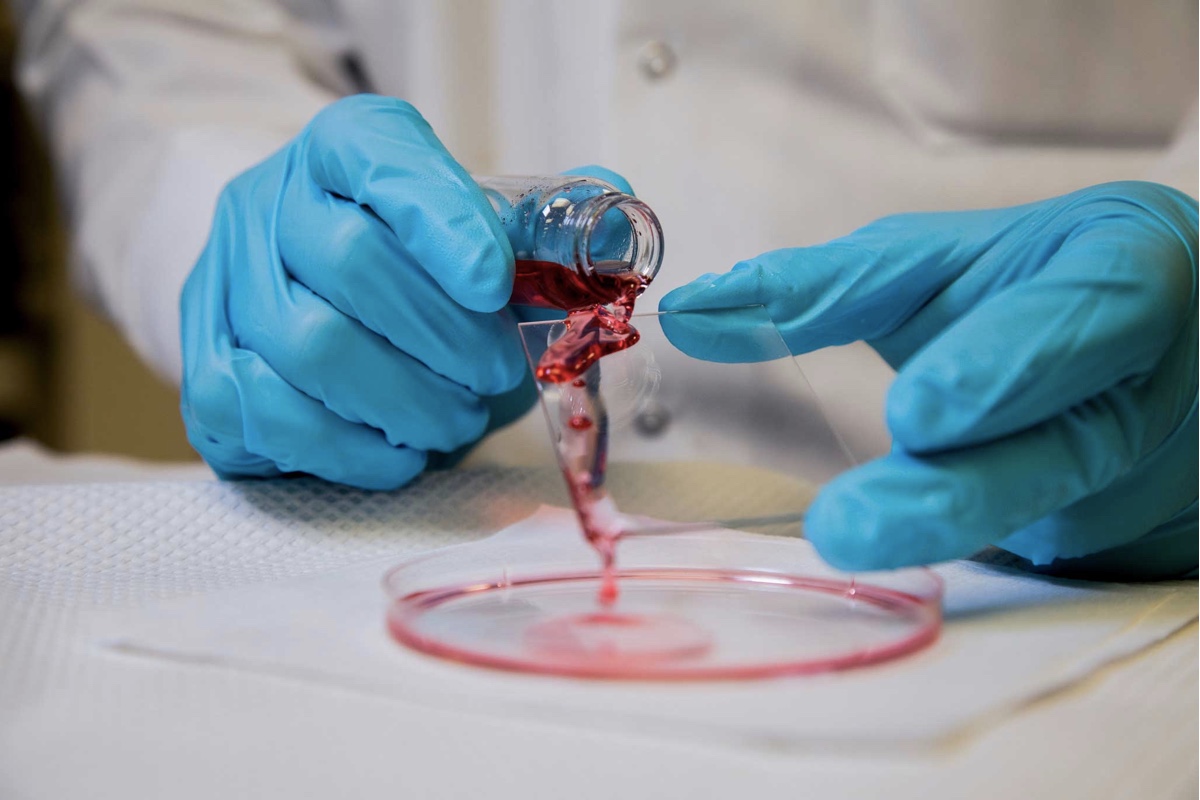Why Every Parent Will Love This 'Everything Repellent'

Good news for parents of small children: A new clear coating can keep fingerprints and jelly smears off your walls, windows and even your phone screen.
The new material is durable and repels almost all liquids, researchers reported in March in the journal ACS Applied Materials & Interfaces.
"I have a 2-year-old at home, so for me, this particular project was about more than just the science," study leader Anish Tuteja, a materials scientist and engineer at the University of Michigan at Ann Arbor, said in a statement. "We're excited about what this could do to make homes and daycares cleaner places, and we're looking at a variety of possible applications in industry as well." [25 Scientific Tips For Raising Happy (& Healthy) Kids]
Liquid repellent
The coating consists of two materials: fluorinated polyurethane (a polymer) and a molecule called fluorodecyl polyhedral oligomeric silsesquioxane (F-POSS). F-POSS is a synthetic molecule with an extremely low surface energy, which is engineering speak for a surface that doesn't easily adhere to coatings.
The key to this combo is that the two substances have an appropriate amount of "miscibility," or ability to mix. The polyurethane acts as a binder that keeps the F-POSS together and sticks it to the surface; the F-POSS does the work of repelling oil, water or other liquids.

"The repellent and binder mix together well enough to make a clear coating, but there's a very small amount of phase separation between them," study co-author Mathew Boban, a graduate researcher in materials science and engineering at Ann Arbor, said in the statement. "That separation allows the F-POSS to sort of float to the surface and create a nice repellant layer."
Coming soon?
Childproof coatings are an obvious application of the technology, and Tuteja and his colleagues said they are now studying the material to make sure it's nontoxic and safe to be used in places like day cares.
Sign up for the Live Science daily newsletter now
Get the world’s most fascinating discoveries delivered straight to your inbox.
Tuteja said he believes that the material will be cost-effective because polyurethane is cheap, and the cost of F-POSS is likely to come down as manufacturers develop mass-production methods for the specialty molecule.
But day care workers and harried parents aren't the only ones likely to appreciate the coating, which Tuteja said could come to the market within two years. The coating could be used in any industry that involves the condensation of liquids, such as refrigeration, oil refining and power generation, the researchers said. The coating could be put on equipment that needs to slough off condensed liquids quickly, thus increasing the efficiency of the process.
Original article on Live Science.

Stephanie Pappas is a contributing writer for Live Science, covering topics ranging from geoscience to archaeology to the human brain and behavior. She was previously a senior writer for Live Science but is now a freelancer based in Denver, Colorado, and regularly contributes to Scientific American and The Monitor, the monthly magazine of the American Psychological Association. Stephanie received a bachelor's degree in psychology from the University of South Carolina and a graduate certificate in science communication from the University of California, Santa Cruz.









